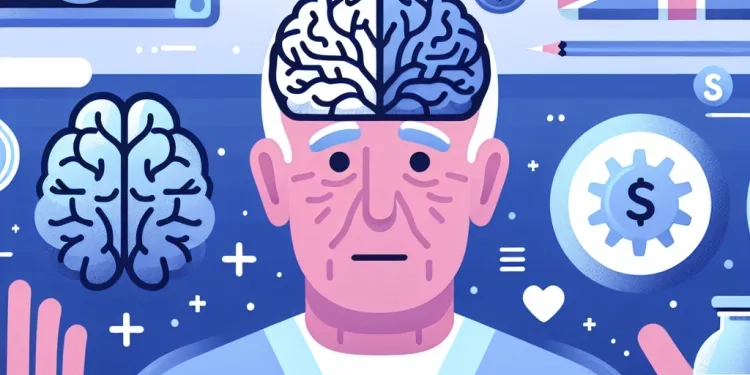
Find Help
More Items From Ergsy search
-
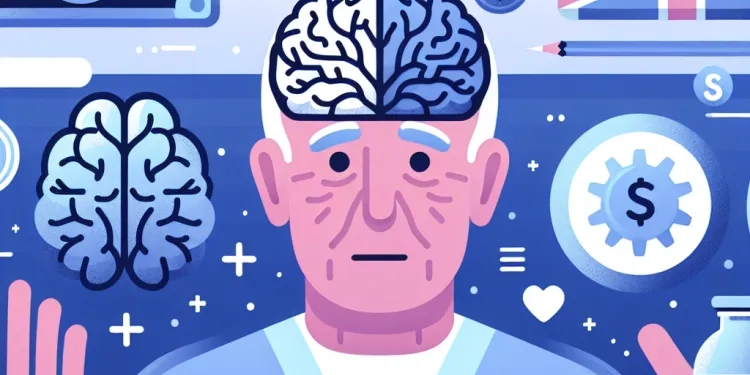
What are the symptoms of Alzheimer's disease?
Relevance: 100%
-

What is Alzheimer's disease?
Relevance: 89%
-

How common is Alzheimer's disease in the UK?
Relevance: 86%
-
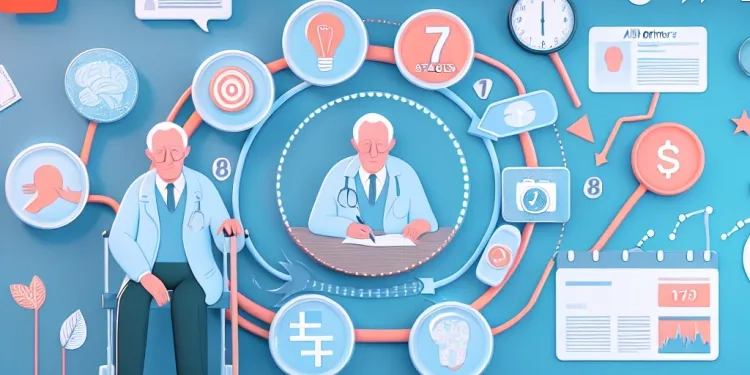
What are the stages of Alzheimer's disease?
Relevance: 86%
-
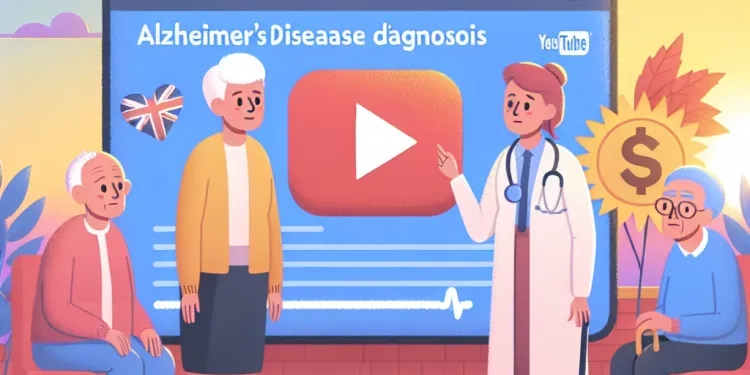
How is Alzheimer's disease diagnosed?
Relevance: 81%
-

What causes Alzheimer's disease?
Relevance: 81%
-

What treatments are available for Alzheimer's disease?
Relevance: 81%
-
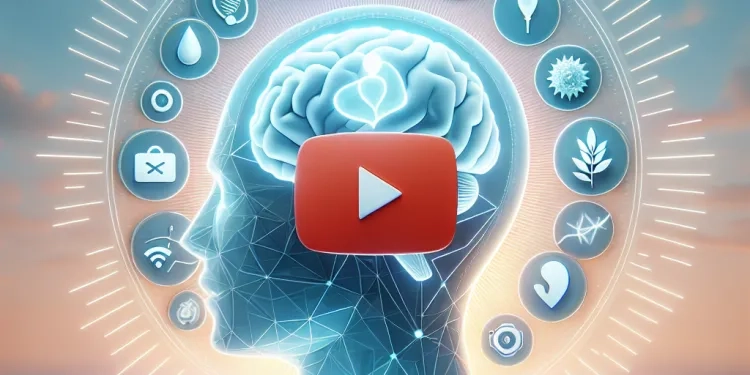
Can Alzheimer's disease be prevented?
Relevance: 78%
-
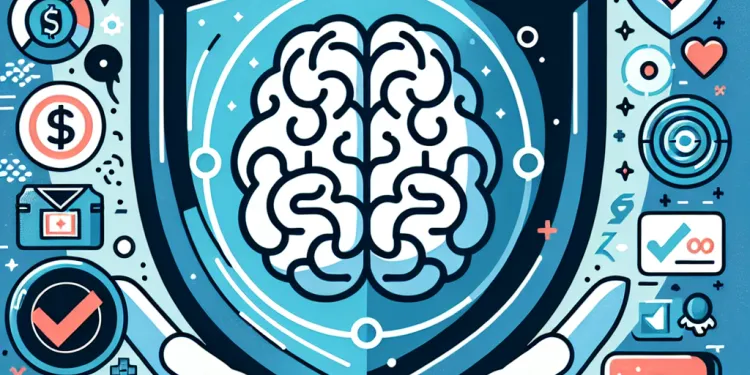
Who is at risk of developing Alzheimer's disease?
Relevance: 77%
-
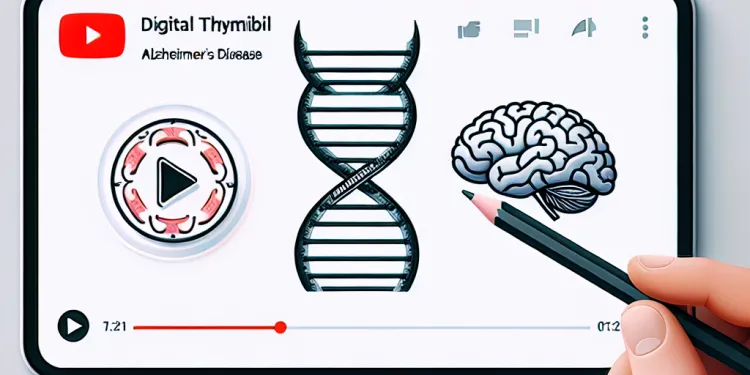
What role does genetics play in Alzheimer's disease?
Relevance: 74%
-

Where can I find information about Alzheimer's disease for carers?
Relevance: 72%
-
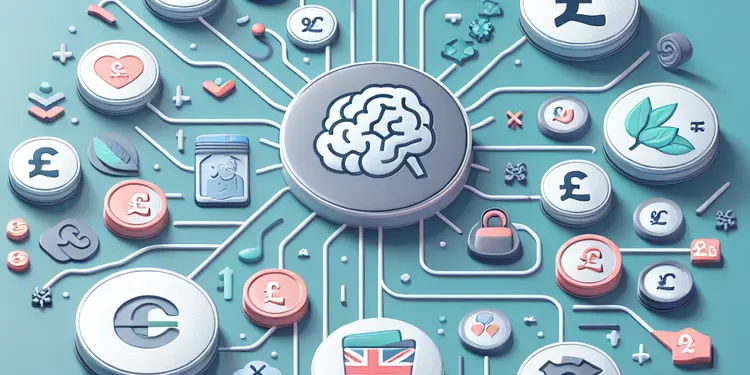
How can carers plan for future stages of Alzheimer's disease?
Relevance: 68%
-

How does Alzheimer's affect daily life?
Relevance: 63%
-

Can technology aid in the care of Alzheimer's patients?
Relevance: 58%
-

What support is available for carers of Alzheimer's patients?
Relevance: 57%
-
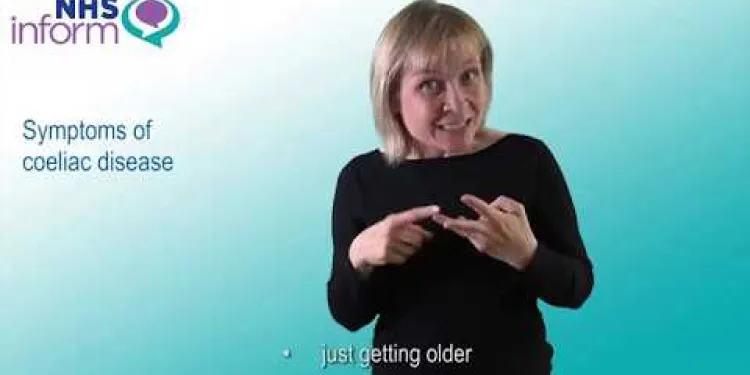
Symptoms of coeliac disease
Relevance: 56%
-

What are the symptoms of Huntington's disease?
Relevance: 53%
-
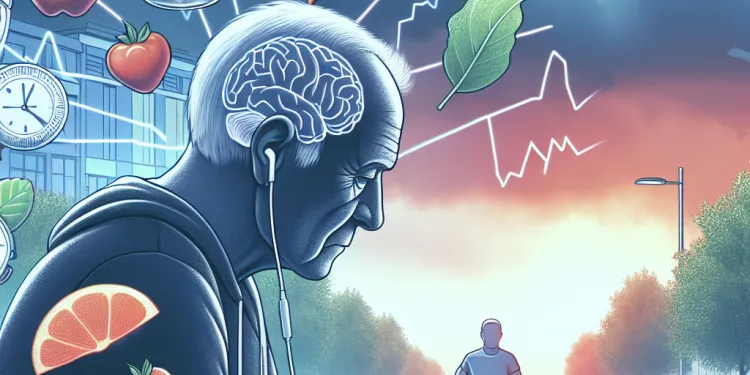
Are there any lifestyle changes that can help reduce the risk of Alzheimer's?
Relevance: 52%
-

What online communities exist for carers of people with Alzheimer's?
Relevance: 52%
-

Are there specific apps or tools to help carers of Alzheimer's patients?
Relevance: 52%
-
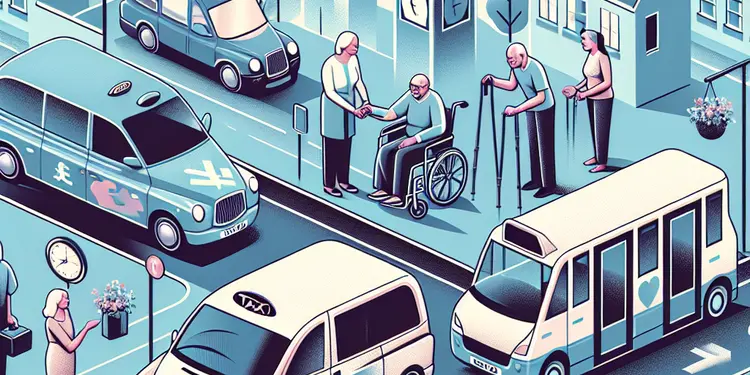
What transportation services are available for Alzheimer's patients and their carers?
Relevance: 51%
-

What are common symptoms of Lyme disease?
Relevance: 51%
-

What emotional support is available for carers of Alzheimer's patients?
Relevance: 51%
-
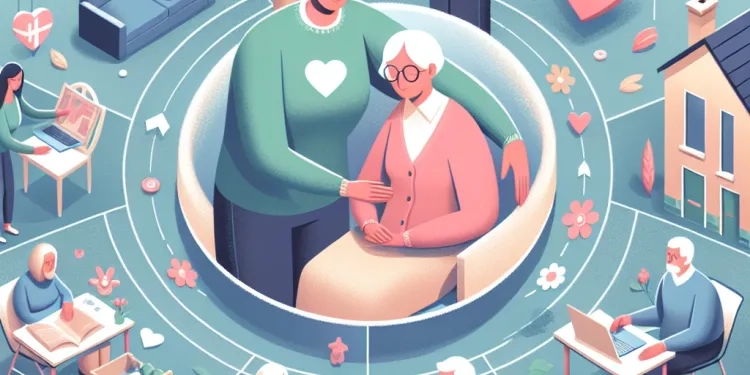
How can families support a loved one with Alzheimer's?
Relevance: 50%
-

What are the common symptoms of Crohn's disease?
Relevance: 50%
-

What are the symptoms of Marburg virus disease?
Relevance: 50%
-

What types of support are available for carers of Alzheimer's patients?
Relevance: 50%
-

How important is self-care for carers of Alzheimer's patients?
Relevance: 50%
-

What are the symptoms of sickle cell disease?
Relevance: 50%
-
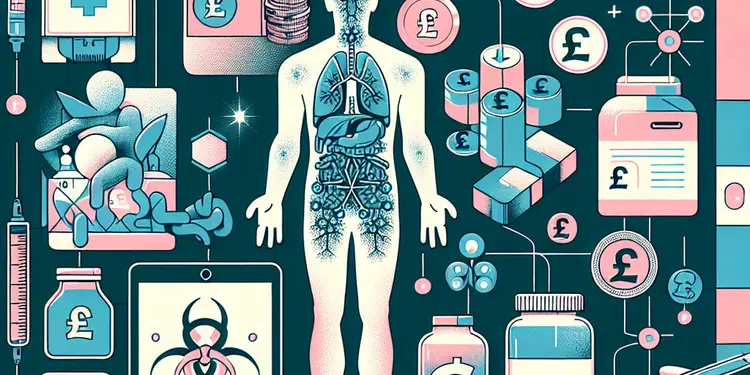
What are the symptoms of flesh-eating disease?
Relevance: 49%
-

How can support groups benefit carers of Alzheimer's patients?
Relevance: 49%
-

Are there financial support programs for carers of Alzheimer's patients?
Relevance: 49%
-
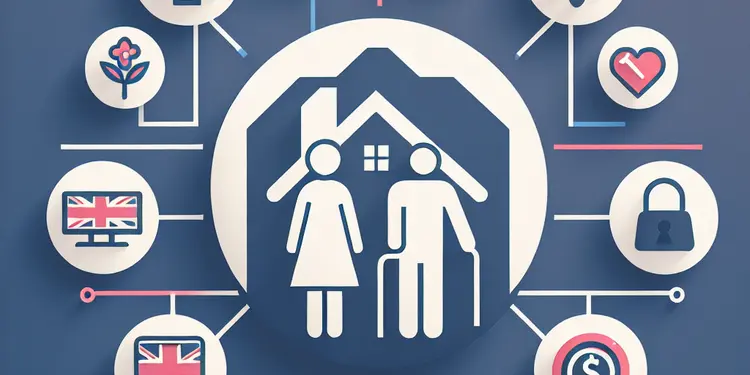
Can carers of Alzheimer's patients access in-home healthcare services?
Relevance: 48%
-
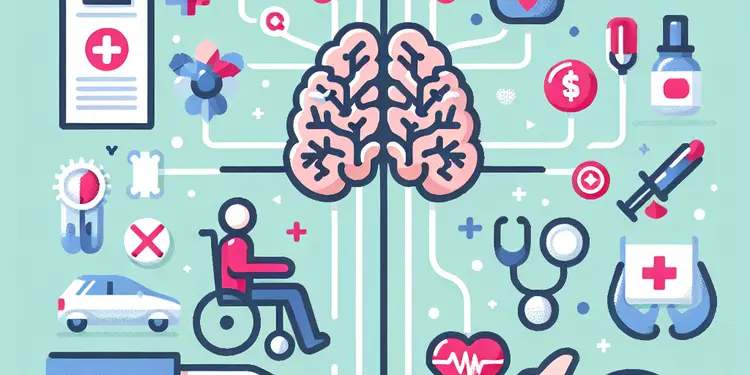
What are the primary symptoms of motor neurone disease?
Relevance: 48%
-

What government assistance is available for carers of Alzheimer's patients?
Relevance: 47%
-

What symptoms should I watch for if I suspect a mosquito-borne disease?
Relevance: 46%
-

At what age do symptoms of Huntington's disease typically appear?
Relevance: 46%
-

What legal resources are available for carers of Alzheimer's patients?
Relevance: 45%
-

What is the finger prick blood test for Alzheimers?
Relevance: 42%
-

Coeliac disease
Relevance: 38%
Understanding the Symptoms of Alzheimer's Disease
Alzheimer's disease is a progressive neurological disorder that leads to the deterioration of memory and cognitive functions. It primarily affects older adults in the UK and around the world. Understanding the symptoms is crucial for early diagnosis and management. Here, we explore the most common symptoms of Alzheimer’s disease.
Memory Loss That Disrupts Daily Life
One of the most recognizable symptoms of Alzheimer's is memory loss, particularly forgetting recently learned information. Individuals may ask for the same information repeatedly, rely heavily on memory aids, or forget important dates or events. This can significantly impact daily activities and interactions.
Difficulty in Planning and Problem-Solving
People with Alzheimer's often struggle with tasks that require following a plan or working with numbers. They may find it hard to keep track of monthly bills or follow a familiar recipe. Their ability to concentrate and process information may also decline, affecting their work and personal lives.
Confusion with Time or Place
Alzheimer's can cause disorientation, making it difficult for individuals to comprehend the passage of time or recognize familiar environments. They may lose track of dates, seasons, or the passage of time, and become lost in places they know well, struggling to remember how they got there.
Changes in Vision and Spatial Relationships
Some individuals with Alzheimer's experience changes in vision, such as difficulty reading, judging distance, and determining colour or contrast. These changes can affect their ability to drive and navigate their surroundings safely.
Impaired Communication and Speech
Alzheimer’s can make it challenging to follow or join conversations. Individuals may stop in the middle of a discussion and not know how to continue or frequently repeat themselves. They may struggle to find the right word or call things by the wrong name, impacting their effective communication.
Withdrawal from Work or Social Activities
As Alzheimer's progresses, those affected may begin to withdraw from hobbies, social activities, or work projects. They might experience a loss of initiative or motivation, partly due to the difficulty they face in keeping up with conversations or recalling how to perform tasks.
Changes in Mood and Personality
Alzheimer’s can lead to mood swings and personality changes. Individuals may become confused, suspicious, depressed, fearful, or anxious. They might be easily upset at home, with friends, or when out of their comfort zone.
Recognizing these symptoms early and seeking medical advice is essential. If you or someone you know is experiencing these symptoms, prompt assessment by healthcare professionals in the UK can lead to beneficial support and management strategies.
Understanding the Symptoms of Alzheimer's Disease
Alzheimer's disease is an illness that affects the brain. It makes it hard for people to remember things and think clearly. It mostly happens to older people in the UK and all over the world. It is important to know the signs of Alzheimer's so we can get help early. Let's look at common symptoms of Alzheimer's disease.
Memory Loss That Disrupts Daily Life
People with Alzheimer's often forget things they have just learned. They might ask for the same information again and again. They might need to use notes or reminders to help them remember. They may forget important dates or events. This can make it hard to do everyday things and talk with others.
Difficulty in Planning and Problem-Solving
People with Alzheimer’s find it hard to make a plan or work with numbers. They might struggle to pay their bills on time or follow a recipe they know well. They might find it hard to concentrate and do tasks at work or at home.
Confusion with Time or Place
Alzheimer's can make people confused about where they are or what time it is. They might forget what day it is, what season it is, or how they got to a place they know well. This can make them feel lost even in familiar places.
Changes in Vision and Spatial Relationships
Some people with Alzheimer’s might find it hard to read, judge distances, or see colours clearly. This can make driving and moving around safely difficult for them.
Impaired Communication and Speech
Alzheimer's can make talking hard. People might stop in the middle of a conversation and not know how to continue. They might repeat themselves or struggle to find the right words. They might call things by the wrong name, which makes communication harder.
Withdrawal from Work or Social Activities
As Alzheimer's gets worse, people might stop doing hobbies or social activities they used to enjoy. They might not want to join in at work or finish projects. They might feel less interested because talking to others or doing tasks becomes hard.
Changes in Mood and Personality
Alzheimer’s can change how people feel and act. They might feel confused, suspicious, sad, scared, or worried. They might get upset easily, whether they are at home, with friends, or in new places.
It's important to notice these symptoms early and talk to a doctor. If these symptoms affect you or someone you know, getting medical help in the UK can lead to better care and support.
Frequently Asked Questions
What is one of the earliest signs of Alzheimer's disease?
One of the earliest signs of Alzheimer's disease is memory loss that disrupts daily life, especially forgetting recently learned information.
How does Alzheimer's disease affect communication?
People with Alzheimer's may have trouble following or joining a conversation, or might struggle with vocabulary, calling things by the wrong name.
What are some disorientation symptoms of Alzheimer's?
Individuals may lose track of dates, seasons, and the passage of time. They might also forget where they are or how they got there.
How does Alzheimer's affect problem-solving abilities?
Alzheimer's can lead to difficulty in developing and following a plan or working with numbers, such as managing finances or following a recipe.
What changes occur in judgment or decision-making in Alzheimer's?
People with Alzheimer's may experience poor judgment when dealing with money, or may neglect grooming and keeping themselves clean.
How might Alzheimer's disease affect initiative?
A person may lose initiative and withdraw from work or social activities, and may become passive, requiring prompts to engage.
What is a common change in mood or personality due to Alzheimer’s?
Individuals may develop mood swings, becoming confused, suspicious, depressed, fearful, or anxious.
How does Alzheimer's impact task completion?
It becomes challenging to complete familiar tasks at home, work, or leisure, such as cooking, driving to a familiar location, or remembering rules of a favourite game.
In what way does Alzheimer's affect spatial awareness?
Alzheimer's can cause difficulties in reading, judging distance, and determining colour or contrast.
Are there any repetitive behaviours associated with Alzheimer's?
Yes, individuals may engage in repetitive speech, repeating the same question or storytelling, or actions, like repeatedly opening drawers.
How does Alzheimer’s disease cause changes in vision?
Some individuals might have difficulty reading, judging distance, or identifying colour and contrast, affecting their ability to drive.
Can Alzheimer’s cause difficulty with daily planning?
Yes, people may have trouble organising and managing daily tasks, leading to confusion when preparing meals or managing appointments.
What are some behavioural changes seen in Alzheimer's disease?
They may exhibit unexplained aggression, wandering, or changes in sleep patterns.
Does Alzheimer's disease affect visual and spatial relationships?
Yes, individuals may have difficulty judging distances and determining contrast or colour, which affects balance and mobility.
How does Alzheimer’s impact daily life management?
People might find it hard to manage bills, keep track of finances, follow a budget, or understand basic safety procedures.
What is an early sign of Alzheimer's disease?
Alzheimer's disease is an illness that affects the brain. A very early sign of Alzheimer's is forgetting things a lot. This might mean forgetting names, places, or important dates. If someone starts forgetting things often, it might be a good idea to talk to a doctor.
Here are some things that might help:
- Using a calendar to keep track of days and events.
- Writing things down in a notebook.
- Setting reminders on a phone or computer.
If you or someone you know is having trouble with memory, a doctor can help figure out what is happening and what to do next.
One of the first signs of Alzheimer's disease is trouble with memory. This means a person might forget things they've just learned. It can make everyday life hard.
How does Alzheimer's disease affect talking and understanding?
Alzheimer's disease is an illness that makes it harder for people to think and remember things. This can also make talking and understanding others difficult.
People with Alzheimer's might:
- Forget words and names.
- Have trouble following conversations.
- Repeat sentences or stories.
- Get confused about what words mean.
Here are some ways to help:
- Use simple words and short sentences.
- Speak slowly and clearly.
- Give them time to think and reply.
- Be patient and understanding.
People with Alzheimer's might find it hard to talk with others. They might use the wrong words for things or find it hard to join a chat.
What signs show someone with Alzheimer's is confused?
Some people might forget what day or month it is. They might not know what time it is. They could also forget where they are or how they got there.
How does Alzheimer's affect thinking skills?
People with Alzheimer's find it hard to solve problems. Their brain does not work like it used to. This can make simple tasks difficult.
Here are some ways to help:
- Use pictures or drawings to explain things.
- Give step-by-step instructions.
- Be patient and give them time to think.
People with Alzheimer's may find it hard to make plans or work with numbers. This means they might struggle with money or cooking from a recipe.
How does Alzheimer's change how people make decisions?
People with Alzheimer's might have trouble making smart choices about money. They might also forget to take care of themselves, like washing and brushing their hair.
How does Alzheimer's disease change what people feel like doing?
Alzheimer's disease is an illness that makes it hard for the brain to work well.
People with Alzheimer's may not want to do things they used to enjoy or start new activities. This is called "losing initiative."
If someone has Alzheimer's, they might need encouragement or help to get started with activities. Family and friends can play games, do puzzles, or go for walks together.
Pictures and reminders can help. You can also create a regular schedule to make it easier to remember things to do.
A person might stop wanting to do things on their own, like going to work or seeing friends. They might seem very quiet and need someone to remind them to join in.
How can Alzheimer’s change how someone feels or acts?
Alzheimer’s can make a person feel or act differently. They might get upset or confused easily.
Tools that can help:
- Keep a calm and quiet place.
- Use simple words and speak slowly.
- Show pictures to help explain things.
- Listen and be patient.
People might have big changes in how they feel. They might get confused, worried, sad, scared, or nervous.
How does Alzheimer's make it hard to finish tasks?
Alzheimer's is a disease that affects the brain. It makes it hard for people to remember things and think clearly.
Because of this, people with Alzheimer's might find it difficult to finish tasks. They might forget what they are doing, mix up steps, or get confused.
To help, here are some tips:
- Make a simple list of steps for each task.
- Use pictures to show each step.
- Ask someone for help or reminders.
These tools can make tasks easier and less confusing.
It can be hard to do things you know well, like cooking, driving somewhere you know, or remembering how to play a game you like.
How does Alzheimer's change the way we understand space?
Alzheimer's can make it hard for people to understand where things are around them. This is called "spatial awareness." When someone has trouble with spatial awareness, they might:
- Have difficulty finding their way, even in places they know well.
- Misjudge distances, like reaching for something and missing.
- Struggle to follow directions or maps.
Here are some tools and tips that can help:
- Use simple maps with clear pictures.
- Put up signs or labels in the house to show the way.
- Keep important things in the same place.
Alzheimer's can make it hard to read, see how far away things are, and tell different colours apart.
Do people with Alzheimer's do the same things over and over?
Yes, some people might say the same thing over and over again, like asking the same question or telling the same story. They might also do things again and again, like opening and closing drawers lots of times.
How does Alzheimer’s disease change how we see?
Alzheimer’s disease can make it harder to see things clearly. It changes how our eyes and brain work together. This can make it difficult to understand what we are looking at.
Here are some things that might help:
- Use bright lights in rooms to see better.
- Make sure things at home are in the same place.
- Use thicker or high-contrast lines to make things stand out.
Some people might find it hard to read, see how far things are away, or tell different colours apart. This can make it hard for them to drive.
Does Alzheimer’s make planning your day hard?
Yes, some people find it hard to keep track of their daily jobs. This can make cooking meals or remembering appointments confusing for them.
How does Alzheimer's disease change the way someone acts?
They might suddenly get angry for no clear reason, walk around a lot, or have trouble sleeping at night.
Does Alzheimer's make it hard to see and understand spaces?
Yes, some people might find it hard to see how far away things are. They might also struggle with seeing different colors or how bright or dark something is. This can make moving around and keeping balance harder.
How does Alzheimer's affect daily life?
Alzheimer's is an illness that affects the brain. It can make it hard for people to remember things or think clearly. This can change how they do everyday activities.
Here are some ways it can affect daily life:
- Remembering names or places can be tough.
- It might be hard to plan things or solve problems.
- People might forget how to do simple tasks like cooking or getting dressed.
- Keeping track of time or dates can be confusing.
To help, use simple reminders like notes or alarms. Having a routine each day can also make things easier.
It can be tough for people to handle bills, keep up with money, stick to a spending plan, or know safety steps.
Useful Links
This website offers general information and is not a substitute for professional advice.
Always seek guidance from qualified professionals.
If you have any medical concerns or need urgent help, contact a healthcare professional or emergency services immediately.
Some of this content was generated with AI assistance. We’ve done our best to keep it accurate, helpful, and human-friendly.
- Ergsy carfully checks the information in the videos we provide here.
- Videos shown by Youtube after a video has completed, have NOT been reviewed by ERGSY.
- To view, click the arrow in centre of video.
- Most of the videos you find here will have subtitles and/or closed captions available.
- You may need to turn these on, and choose your preferred language.
- Go to the video you'd like to watch.
- If closed captions (CC) are available, settings will be visible on the bottom right of the video player.
- To turn on Captions, click settings .
- To turn off Captions, click settings again.
More Items From Ergsy search
-

What are the symptoms of Alzheimer's disease?
Relevance: 100%
-

What is Alzheimer's disease?
Relevance: 89%
-

How common is Alzheimer's disease in the UK?
Relevance: 86%
-

What are the stages of Alzheimer's disease?
Relevance: 86%
-

How is Alzheimer's disease diagnosed?
Relevance: 81%
-

What causes Alzheimer's disease?
Relevance: 81%
-

What treatments are available for Alzheimer's disease?
Relevance: 81%
-

Can Alzheimer's disease be prevented?
Relevance: 78%
-

Who is at risk of developing Alzheimer's disease?
Relevance: 77%
-

What role does genetics play in Alzheimer's disease?
Relevance: 74%
-

Where can I find information about Alzheimer's disease for carers?
Relevance: 72%
-

How can carers plan for future stages of Alzheimer's disease?
Relevance: 68%
-

How does Alzheimer's affect daily life?
Relevance: 63%
-

Can technology aid in the care of Alzheimer's patients?
Relevance: 58%
-

What support is available for carers of Alzheimer's patients?
Relevance: 57%
-

Symptoms of coeliac disease
Relevance: 56%
-

What are the symptoms of Huntington's disease?
Relevance: 53%
-

Are there any lifestyle changes that can help reduce the risk of Alzheimer's?
Relevance: 52%
-

What online communities exist for carers of people with Alzheimer's?
Relevance: 52%
-

Are there specific apps or tools to help carers of Alzheimer's patients?
Relevance: 52%
-

What transportation services are available for Alzheimer's patients and their carers?
Relevance: 51%
-

What are common symptoms of Lyme disease?
Relevance: 51%
-

What emotional support is available for carers of Alzheimer's patients?
Relevance: 51%
-

How can families support a loved one with Alzheimer's?
Relevance: 50%
-

What are the common symptoms of Crohn's disease?
Relevance: 50%
-

What are the symptoms of Marburg virus disease?
Relevance: 50%
-

What types of support are available for carers of Alzheimer's patients?
Relevance: 50%
-

How important is self-care for carers of Alzheimer's patients?
Relevance: 50%
-

What are the symptoms of sickle cell disease?
Relevance: 50%
-

What are the symptoms of flesh-eating disease?
Relevance: 49%
-

How can support groups benefit carers of Alzheimer's patients?
Relevance: 49%
-

Are there financial support programs for carers of Alzheimer's patients?
Relevance: 49%
-

Can carers of Alzheimer's patients access in-home healthcare services?
Relevance: 48%
-

What are the primary symptoms of motor neurone disease?
Relevance: 48%
-

What government assistance is available for carers of Alzheimer's patients?
Relevance: 47%
-

What symptoms should I watch for if I suspect a mosquito-borne disease?
Relevance: 46%
-

At what age do symptoms of Huntington's disease typically appear?
Relevance: 46%
-

What legal resources are available for carers of Alzheimer's patients?
Relevance: 45%
-

What is the finger prick blood test for Alzheimers?
Relevance: 42%
-

Coeliac disease
Relevance: 38%


